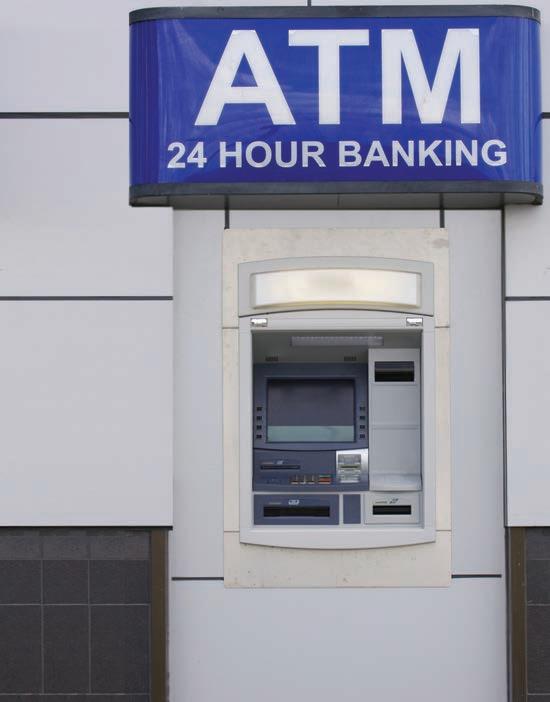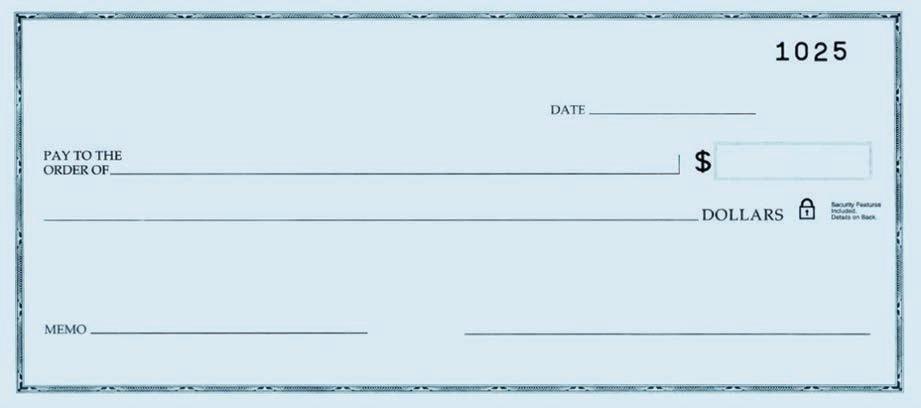
6 minute read
Finances
33) Tax Time
You need to file an income tax return every year on or before April 15th if you meet certain requirements that depend on how much you make. You can also ask for an extension if you need more time. You can file taxes using a Social Security Number (SSN) or an Individual Taxpayer Identification Number (ITIN). You can apply for an ITIN if you do not have a SSN. The Form 1040EZ is a simple form for people who do not need the full form 1040. Dependents are people who are dependent on your income, such as children you support. The number of dependents you have and your income level determine how much you pay or receive. This information is from the W-4 form you complete when you begin working with a company. The Earned Income Tax Credit (EITC) is a tax credit for low-income working individuals and families. Different companies such as H&R Block can prepare your taxes for a cost. Or, some Internet programs help you prepare your taxes for free.
34) Form W-2 Wage and Tax Statement
W-2 forms are used to report money paid to employees and taxes taken out. The W-2 reports income from January 1st through December 31st. You receive a copy of your W-2 form in the mail or at your work in January. Use the information on your W-2 form to file your taxes.
(34) W-2 Wage and Tax Statement example
35) Budgeting
Make lists of your income (money coming in) and expenses (money being spent). Make a monthly budget and include expenses for: - Food - Entertainment - Lodging - Utilities - Clothing - Phone - Insurance - Transportation - Donations - Internet - Savings - Emergencies
36) Checking & Savings Accounts
Banks and credit unions are a safe place to keep your money. If the money you keep there is lost or stolen the U.S. government will pay it back to you. It is not safe to carry a lot of cash. Opening a checking account allows you to: - Write checks. - Make debit card payments, which immediately take money out of the account. - Get cash from ATM machines. ATM machines can be free if they are connected to your bank or credit union. To open an account you often need two forms of identification, proof of address, and an opening deposit. Some factors to consider when choosing a bank or credit union include: - Monthly fees for the account. - Interest rates. - How close it is to your home or work. There are businesses that cash checks for people without accounts, but they may charge a lot of money. Payday lenders offer cash advances or small loans. They charge large fees if you do not pay back the loan quickly. Do not send cash in the mail. If you do not have a checking account and you need to mail a payment, purchase a money order from a bank or grocery store.
(35) Budgeting
(36) ATM machine


37) Credit Cards
A credit card allows you to buy now and pay later. The longer you wait to pay back the full amount you owe, the more interest you pay. Interest rates can be very high. Cards have different annual fees, benefits and interest rates. Some companies offer a low-interest or interest-free period (0% APR – Annual Percentage Rate) to start, but eventually they increase the rate. In order to receive a credit card, the bank will determine if you can afford the card. The bank then sets your credit limit, which is the maximum amount you can spend. If you cannot get approved for a credit card because you have no credit history, you can open a secure credit card. With secured credit you can’t spend more than you have deposited in your account.
38) Credit Ratings & Reports
Your credit rating tells lenders, such as credit card companies and mortgage companies, how responsible you are in paying your bills and debts. A good credit rating allows you to borrow money through loans to buy expensive things like a house or a car. You build up your credit rating by paying your bills for credit cards and loans on time. For a free credit report to see your credit history, visit annualcreditreport.com or call 1-877-322-8228. You may have to pay to view your credit score. In general, a score of 725-759 is good. A score of above 760 is excellent and will get you the lowest interest rates.
39) Saving & Growing Money
There are many options for making your money grow. You can earn interest through a savings account (typically 0 to 3%), through CDs (1 to 5%), bonds, and stocks. Talk to an expert for more information.
40) Check Writing & Cashing
In order to cash, deposit or transfer a check you have to sign your name on the back of the check. When writing a check you need to include: 1. The date. 2. The amount as a number. 3. The amount in writing. 4. The name of the person or company receiving the check. 5. Your signature If you want to sign your check for another person to cash or deposit write on the back of the check: 1. “Pay to the order of” on the top line 2. The person’s name on the next line 3. Your signature on the next line When you write a check for more money than you have in the bank, the bank will charge you a fine of $10 or more. This is called an “overdraft”. Some banks and credit unions offer overdraft protection.
41) Identity Theft
Be careful about sharing your personal information because people can use it to open credit cards. Shred, don’t just throw away or recycle, documents that have your: - Social security number. - Bank account numbers. - Credit card numbers. When you give personal information to a credit card company, bank, etc., you should be the person who started the communication. Don’t carry important documents such as your passport or birth certificate with you when you don’t need them. If you receive an email from the IRS or from a bank asking for personal information, it is probably false. Call if you are not sure. The IRS does not do business through email.
42) Notary Publics
Notaries observe the signing of important documents and confirm that the documents are real. Some financial institutions will offer its customers this service for free. You should never pay a lot of money for this service.
(41) Shredding Paper

(44) Energy-Efficient Light Bulb
43) Filing Insurance Claims

Types of insurance you can pay for include car, health, life, property, renter’s, and disability. You usually pay for the insurance every month This amount is often called the “premium”. If you have insurance, you must first file an insurance claim for the injury or accident before you receive money from the insurance company. Filing a claim needs to be done correctly. If you make mistakes with your claim, you may not receive money. Keep receipts for major purchases or repairs you make. If you experience theft, immediately report it to the police.
44) Home Energy Saving & Typical Bills

Common bills at home include electric, water, heat/gas, phone, trash, and cable/Internet. You often have the option to pay bills through the Internet or automatic payments that take money directly from your account. You can save energy and money by doing simple things such as: - Buy energy-efficient light bulbs. - Turn off TVs, lights and other electronics when not in use. - Only use heat and air conditioning when necessary. - In hot weather, keep the house dark during the day and let in air if it is cool at night. - In cold weather, let the sun shine in during the day.








